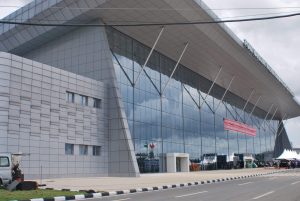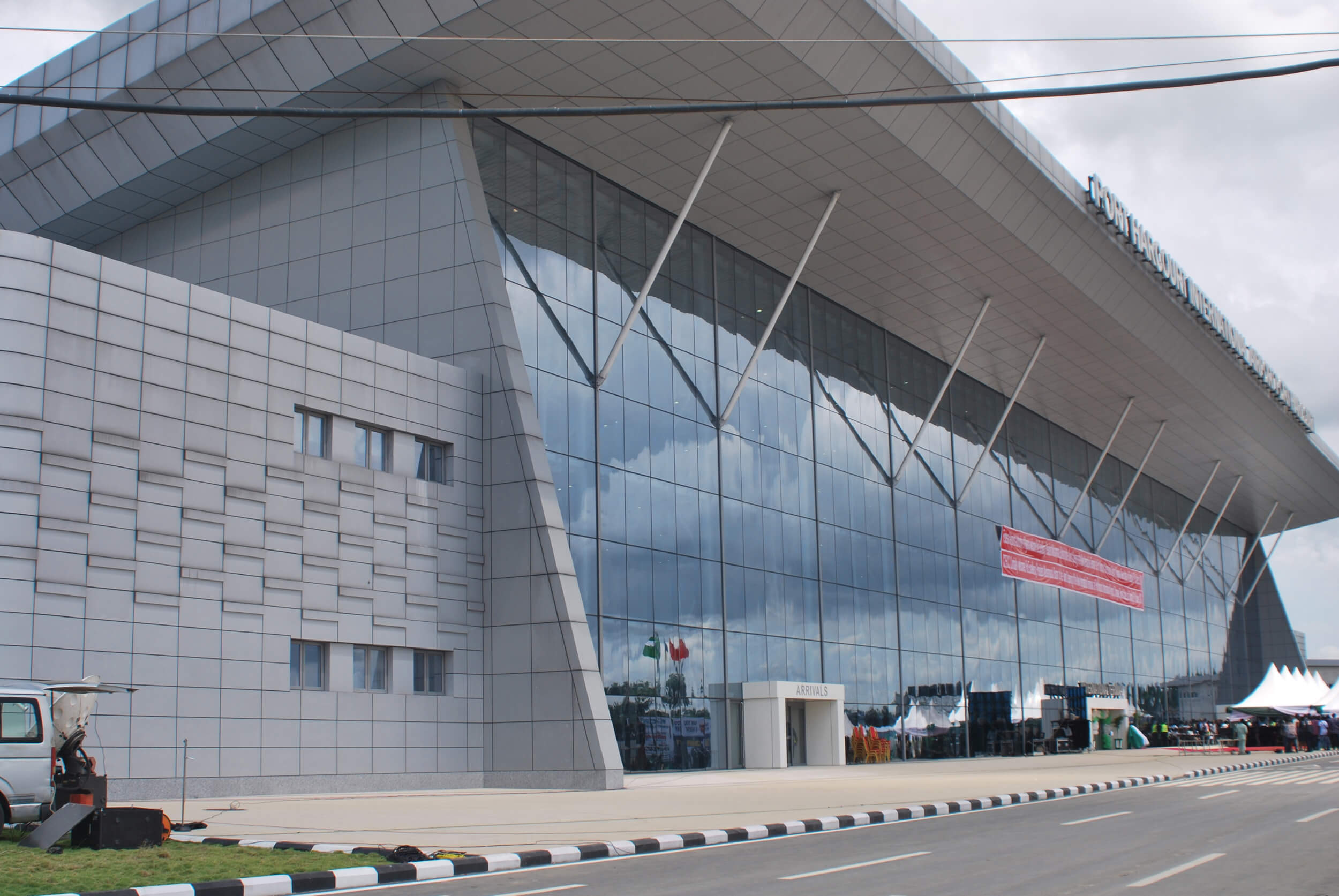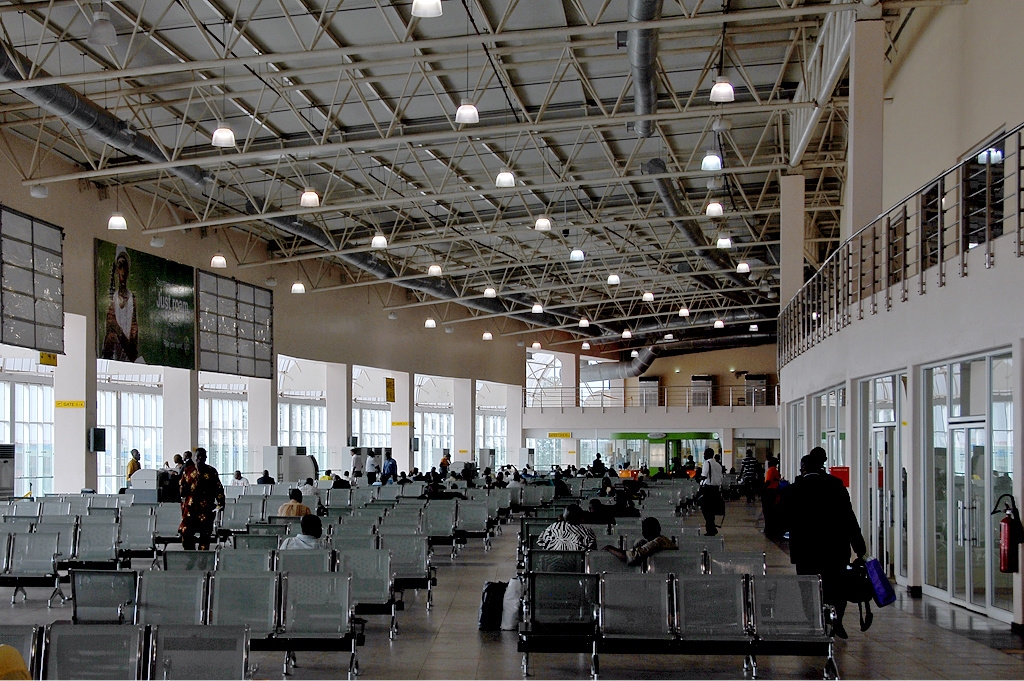
A former Special Advisor on Investment and Rapid Airport Development to the Minister of Aviation, Dr. Daniel Tarka has said in order to solve the major problem in air transport in Nigeria, which is obsolete infrastructure, the federal government should fully embrace public private partnership (PPP).
Tarka who spoke to THISDAY in exclusive interview on Wednesday, said investing in aviation infrastructure through PPPs can fuel economic growth, improve airport facilities, including runways and air traffic management systems. He remarked that it would attract more airlines, leading to increased connectivity in air travel, adding that it will in turn, boost tourism, trade, and investment, thus driving overall economic expansion.
He said such investment by the private sector would also create more jobs because the development and modernisation of aviation infrastructure require a substantial workforce, leading to job creation in various sectors, cutting across construction workers and engineers to aviation professionals and service providers. He said PPPs would also generate employment opportunities, reducing unemployment rates and contributing to increased disposable incomes.
“It will also increase revenue generation because it will provide a more efficient and modern aviation sector, which will contribute to increased revenue generation for the government. With enhanced connectivity, tourism inflows will rise, leading to higher tourism-related revenue through VAT, hotel taxes, and other fees. Additionally, increased air travel results in greater airport revenue from passenger fees, fuel taxes, and other charges.
“So, adopting the PPP model will attract private sector investments, reducing the burden on public finances. Such partnerships bring in the expertise, innovation, and financial resources of private companies, ensuring efficient project execution and long-term sustainability. It allows the government to allocate its limited resources to other priority areas,” Tarka stated.
He also observed that this would enhance regional integration and trade facilitation, explaining that a well-developed aviation infrastructure enhances regional integration and trade facilitation.
“Efficient airports and air traffic management systems enable seamless movement of goods, services, and people within Nigeria and with neighboring countries. This promotes regional trade, cross-border investment, and economic integration, bolstering economic cooperation and development. It also promotes tourism because improved aviation infrastructure and connectivity increase the attractiveness of Nigeria as a tourist destination. Better airports, smooth travel experiences, and increased air routes attract more international tourists, leading to a boost in tourism revenue and sustained growth in this sector. The tourism industry also supports the development of related sectors like hospitality, entertainment, and transportation,” he added.
He also observed that investment in airport infrastructure will have spill-over effect that will have positive impacts of aviation infrastructure development through PPPs that will extend beyond the aviation sector itself.
“There will be the upgrading of airports and related facilities. This will stimulate demand for other industries such as construction, hospitality, retail, and transportation. These spillover effects create business opportunities, stimulating of local economies, and contribute to overall economic diversification. Overall, the implementation of PPPs in aviation infrastructure reforms is expected to create a multiplier effect, fostering economic growth, job creation, private sector investment, and increased revenue for the Nigerian economy by 2030. It also positions Nigeria as a competitive player in the global aviation industry and strengthens its position as a regional economic hub,” he said.
Identifying the problems bedeviling the Nigerian aviation sector, Tarka said inadequate infrastructure remained one of the primary challenges, which include airports, runways, and air traffic management systems, noting that many airports in Nigeria are outdated, lacking modern facilities and technologies.
He also said safety and security concerns remained significant challenges in Nigeria’s aviation sector, remarking that there have been instances of accidents and security breaches in the past, highlighting the need for strict adherence to international safety standards and effective security measures.
Tarka who is currently a Trade Advisor with EuroExim Bank Limited, said although Nigeria has made progress in establishing regulatory bodies such as the Nigeria Civil Aviation Authority (NCAA), there was need for continuous improvement in the regulatory framework, adding that the industry requires robust and enforceable regulations to ensure compliance, prevent monopolies, and promote fair competition.
“The aviation industry in Nigeria faces a shortage of skilled and trained personnel across various areas, such as pilots, air traffic controllers, and maintenance technicians. Addressing this challenge requires investing in aviation education and training programs to develop a qualified workforce to sustain the sector’s growth.
“To generate adequate funding, attracting private sector investments for infrastructure development and modernization is crucial. Nigeria needs to create an enabling environment for investment, including transparent policies, favorable regulations, and incentives to attract both local and foreign investors. In the area of connectivity and regional integration, Nigeria’s aviation sector can benefit from improved connectivity within the country and enhanced regional integration. Developing air transport agreements and partnerships with neighboring countries can boost tourism, trade, and economic growth. Also, as the world increasingly focuses on reducing carbon emissions and promoting sustainable practices, the aviation sector faces the challenge of balancing its growth with environmental concerns. Nigeria needs to adopt more sustainable and eco-friendly practices to minimize the impact of aviation on the environment,” Tarka said.
To address the aforementioned challenges, Tarka said the Nigerian government had in the past implemented several reforms in the aviation sector over the years. He however said that despite these reforms, the aviation industry in Nigeria still faces significant challenges, including poor safety records, high operational costs, and inadequate infrastructure. He stressed the need to explore new approaches and strategies that can help to overcome these challenges and position the industry for sustained growth and development.
According to him, “One approach is to leverage technology and data-driven solutions to optimize air commerce. With the increasing adoption of digital technologies in the aviation industry, there is a need for Nigeria to develop algorithms and analytical tools that can help to optimize operational efficiency, improve safety, reduce costs, and enhance the passenger experience.
“However, to achieve this, it is crucial to build a robust digital infrastructure that can support the collection, processing, and analysis of data. This will require investments in advanced technologies such as artificial intelligence, machine learning, and the Internet of Things, as well as the development of policies and regulations that can guide data collection and analysis. Another critical factor is the development of partnerships and collaborations between stakeholders in the industry. This can involve partnerships between airlines, airports, and regulators to share data and insights that can inform decision-making and optimise operations.”
In conclusion, Tarka observed that the aviation sector in Nigeria has come a long way, and the reforms implemented over the years have contributed significantly to its growth and development. He however said there was need to explore new approaches and strategies to overcome the challenges that still hinder its progress. Leveraging technology and data-driven solutions can help to optimise air commerce, improve safety, and enhance the passenger experience, ultimately positioning the industry for sustained growth beyond 2030.






